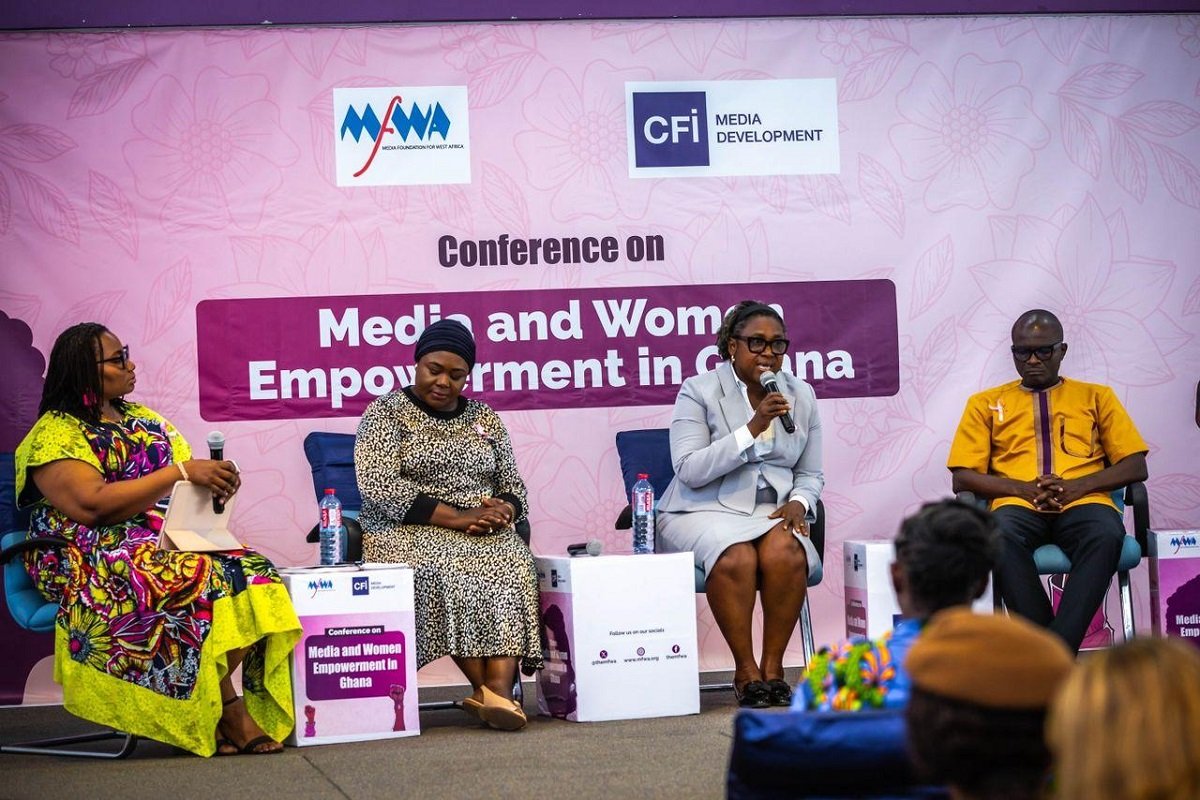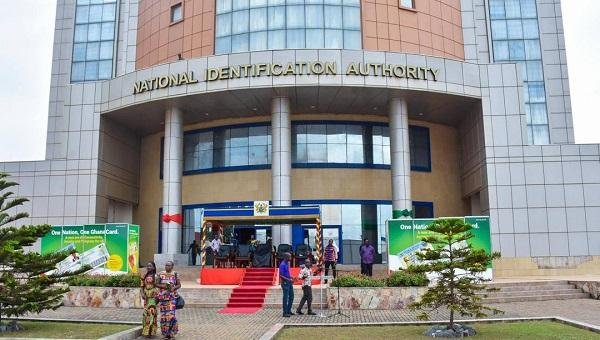News
Media organisations told to create female-friendly workplaces

A section of the panellist at the forum
Media organisations have been urged to create supportive workplace environments sensitive to specific needs of female journalists.
According to the Executive Director of Women and Change (WOMEC), Dr Charity Binka, women have been marginalised in the media space for too long, adding that women make up only 25 per cent of news and 30 per cent of leadership roles in the media industry.
Dr Binka made this recommendation in a presentation on “Equal Voices- Promoting gender equality in media in Ghana” at the Media and Women Empowerment Forum held at the Accra International Conference Centre (AICC) last Wednesday.
The conference which was organised by Media Foundation for West Africa (MFWA) in partnership with the French Media Development Agency was to combat gender inequalities while promoting women at all levels of responsibility in the country.
“There’s no focus on women in the media and most of the organisations do not have policies on gender and gender-based abuse,” she said.
Furthermore, Dr Binka noted that media houses who have guidelines on gender must develop them into policies and the ones who have existing policies must ensure that these policies were enforced.
“Journalism training schools should incorporate gender into their curriculum and where they lack capacity, they should collaborate with gender experts,” she added.
The Head of Department of Communications Studies, University of Ghana, Prof. Abena Animwaa Yeboah-Banin, emphasised the need for media organisation to adopt female friendly workplace practices, adding that there was evidence of masculine work practices and socialisation which makes it difficult for women to fit in.
She called for women participation in decisions making especially in matters that affects women or related to them.
“Women are not sitting at the table where decisions that affect them are made; there is low inequality consciousness. Sometimes, women who are being discriminated against do not know about it themselves,” she noted.
On her part, the Deputy Director, Ministry of Gender, Children and Social Protection, Ms Vera Karikari, said the media was a powerful tool that could reinforce stereotypes or drive empowerment that can bring change.
Other speakers included the Programmes Officer, Media for Democracy and Good Governance, MFWA, Mr William Nianjerbor Jalulah; a lecturer at UniMAC-IJ, Mrs Ewuradwoa S. Tabicca, and Head of Social and Development Desk, Despite Media, Ms Nana Yaa Konadu Yiadom.
By Cecilia Lagba Yada
News
Criminal and Seditious Libel Law was repealed in 2001 yet we still face harassment – NPP

The New Patriotic Party (NPP) has criticised the government for what it calls a return to the “culture of silence” in Ghana, despite the repeal of the Criminal and Seditious Libel Law more than two decades ago.
In a press statement issued on Wednesday, the party said the arrest and detention of its Bono Regional Chairman, Kwame Baffoe, also known as Abronye, for allegedly insulting the Inspector General of Police (IGP) was the latest sign of political intimidation.
According to the NPP, eight months into President John Dramani Mahama’s administration, state security had been “weaponised” not to fight illegal mining or protect citizens, but to intimidate and punish dissenting voices.
The party said insecurity in areas such as Bawku, Nkwanta and Gbeniyiri in the Savannah Region had claimed more than 32 lives and displaced over 50,000 people, yet the police and national security were more focused on arresting opposition supporters and social media users for their posts.
The NPP noted that Ghana abolished the Criminal and Seditious Libel Law in 2001 under President John Agyekum Kufuor to protect free speech and media freedoms.
It described the recent arrests of opposition members as an erosion of those democratic gains.
The party said it did not condone insults or vulgar language in public discourse but stressed that anyone who felt defamed should seek redress through civil defamation suits, not criminal prosecution.
It also accused the government of undermining the judiciary by “weaponising” it against political opponents, citing the removal of the Chief Justice.
“The growing climate of intimidation and criminalisation of speech is a serious assault on Ghana’s democracy,” the statement signed by NPP General Secretary Justin Kodua Frimpong said.
The NPP called on all Ghanaians to resist what it described as a return to tyranny and pledged to roll out a series of actions to protect the country’s democratic gains.
By: Jacob Aggrey
News
NIA opens Premium Centres to register children

The National Identification Authority (NIA) has started registering Ghanaian children aged between six and 14 years at all its Premium Centres across the country.
The Authority says the exercise is part of its duty to register every Ghanaian, both at home and abroad, so that all citizens can have a secure and verifiable national identity.
It explained in a statement issued today that the registration will help build a complete and inclusive National Identity Register (NIR) that captures every Ghanaian from childhood.
According to the NIA, the fee for first-time registration at Premium Centres is GHS 310, which is the approved charge for premium services.
The Authority said the requirements are the same as for applicants aged 15 years and above.
It affirmed that Parents or legal guardians were required to present either a valid Ghanaian passport of the child, the original copy of the child’s birth certificate, or be a Ghana Card holder who can vouch for the child.
The NIA also announced that from Monday, September 15, 2025, its online registration and booking system will be extended to the remaining 11 Premium Centres nationwide.
This it said will allow parents and guardians to schedule appointments more conveniently and avoid delays at the centres.
It further stated that information on the issuance of Ghana Cards for children aged six to 14 years who had already registered will be shared later.
In the coming weeks, the Authority plans to extend this registration service to all NIA District Offices to make it easier for more people to access the service.
By: Jacob Aggrey













